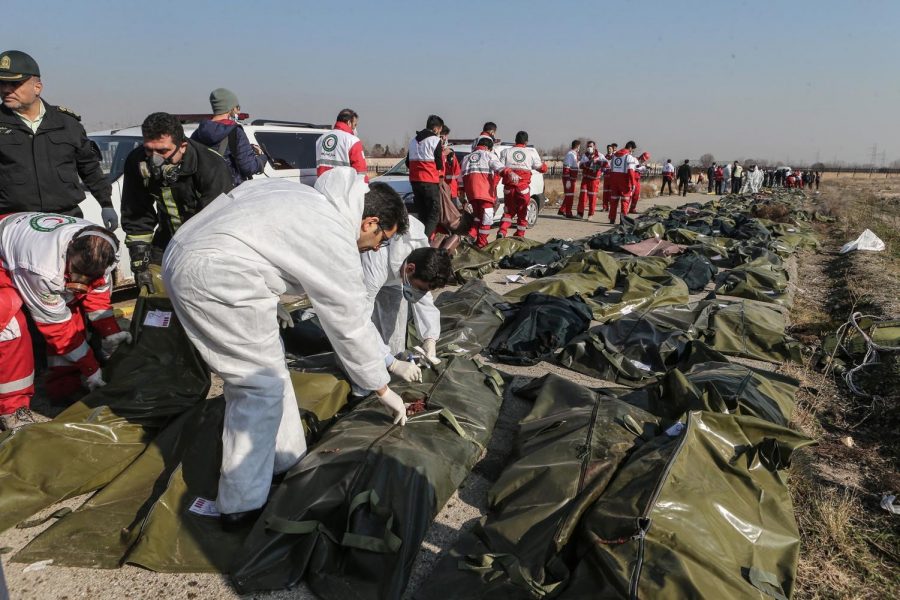American and Iranian relations deteriorated further after a U.S. drone strike killed a top Iranian military commander earlier this month. Here’s a look at the strike, the fallout and what the future might hold for both countries.
The Strike
On Jan. 3, an airstrike, approved by President Trump, killed Iranian Maj. General Qassim Suleimani. The Iranian regime swore “a harsh revenge,” as Suleimani was a revered figure in the country.
Afshin Matin-asgari, a Cal State LA assistant professor of history and Iran expert, criticized the decision to kill Suleimani. “There’s absolutely no legal justification for [this]. Nor has the Trump administration provided any,” he said in a phone interview.
The administration’s justification for the strike was that it was to prevent “imminent” attacks.
However, Matin-asgari felt the president was too vague. “The so-called justification was never clear; we just have to take Trump’s word for it.”
Matin-asgari went as far as labeling the strike an “assassination.” That’s significant since assassination was outlawed by the U.S. in 1976, with following administrations justifying so-called “targeted killing” with legal and technical rationale.
John Yoo, a UC Berkeley law professor, has argued the killing was legal due to the joint resolutions of the Authorization to Use Military Force of 2001 and 2002. Those resolutions authorized force against those behind the 9/11 attacks and approved the invasion of Iraq respectively, Yoo wrote in a National Review op-ed.
Iran’s Response
Just a couple months prior, Iran faced massive civil unrest, with protesters demanding for the government to step down. That changed in the immediate aftermath of Suleimani’s death. Iranians united behind the regime, taking to the streets mourning the general and condemning the U.S. with chants of “Death to America.”
On Jan. 8, following up on its promise of vengeance, Iran fired ballistic missiles at Iraq military bases housing U.S. and Iraqi troops. Eight American service members were later flown out to be examined for concussion symptoms.
Hours after those missiles were launched, Iran shot down a Ukrainian airline craft and killed all 176 people onboard. Initially denying responsibility for three days, the government eventually admitted the plane was shot down as a result of “human error,” as the aircraft was mistaken for “a cruise missile.”
The tragedy and its initial denial sparked outrage abroad and domestically. Some of Iran’s citizens swung back to protesting the regime.
“[The] shooting down of the Ukrainian aircraft with Iranians on board really changed the narrative,” said Matin-asgari. “A lot of people in Iran apparently are seeing this as a flagrant kind of unacceptable act. It changed the situation from one where the regime was capitalizing on Suleimani’s assassination to one where the regime cannot really justify or answer back for its shooting down of a passenger plane.”
What the Future Holds
After the missile strikes against Iraq military bases, the Iranian regime said it had “concluded” its retaliation, and signaled a desire to de-escalate. Hours after the bases were attacked, Trump announced he was ordering further sanctions on Iran.
Considering the burdensome sanctions and the internal outrage against the regime, Matin-asgari said Iran has its hands too full to radically respond to the U.S.
“The position of the Iranian government has become weaker and deteriorated because of domestic unrest [and] anti-government protests… So, I can’t anticipate the Iranian government to be in a position to do something drastic against the U.S. because they’re already hurting very badly economically.” He added, “The Suleimani assassination, whatever it was, I think is behind us.”
While the tensions have de-escalated, the regime’s fury hasn’t faded.
On Jan. 17, a few days after Matin-asgari’s interview, Iran’s Supreme Leader Ayatollah Ali Khamenei delivered a public sermon condemning the U.S. and praising Suleimani. The event included “Death to America” banners and U.S. flags on the floor to be stepped on.
Before he was a professor, Matin-asgari did his undergraduate and graduate studies at Cal State LA. In between his academic career, he participated in Iran’s revolution, opposing both exiting and incoming regimes.
Today, his loved ones living in Iran, who he communicates with nearly every day, are worried about what the future might bring.
“Recently, they’re very afraid and very anxious about a serious threat [like that] of the U.S. invasion of Iran. It was very difficult to talk to them because they’re reasonably afraid of being bombed.”
It’s not just them, but the whole country that’s going through hardship, he said.
“What people need, they can’t find them on the market because of the sanctions including medicine, including some basic necessities. So, everybody’s suffering.”
News Sourced by the New York Times














